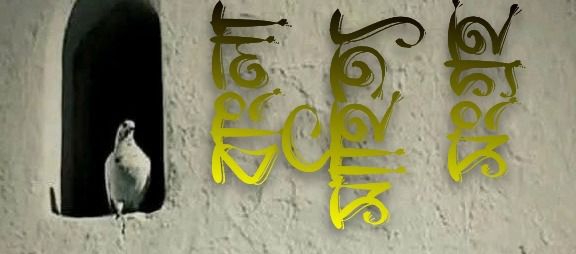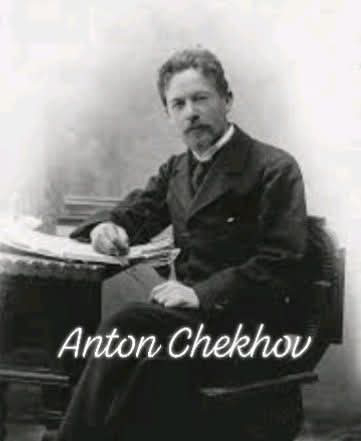(This report was originally written in 1998. The current article is a rewritten version based on the initial content.)
.download) |
| The picture is symbolic |
Authored by: Rabi Roy
It was 1995 when I encountered a local daily news-article dated August 21, titled '35-year-old woman 'wedded' to Krishna idol'. As reported by The Telegraph Calcutta (currently Kolkata) edition, a prominent English daily, Jyotsna Datta, an unmarried middle-aged woman and daughter of Nalinikanta Datta, a retired Census worker from Bhatjangla gram (village) Panchayat, Nadia district, West Bengal (WB), India, was married to a Krishna idol in May 1995, purportedly at the instigation of Bamdev Mishra, a 75-year-old priest of a local temple and originally from Orissa, prompting me to rush to the village.
So far my knowledge concerns, the devadasi system existed in undivided Bangladesh, formerly an Indian province, until the 11th century. Nonetheless, there is no indication of its continuation in recent centuries, and the Bhatjangla incident can thus be viewed as a unique precedent in WB, at least during the period following Indian Independence.
Bordering National Highway 34, which passes through Krishnanagar, a historic town in Nadia district, WB, and situated within walking distance from the station, Bhatjangla is a considerable village with a population of nearly fifteen thousand, of which eighty percent are literate.
On November 10, 1998, I spent a couple of hours in that village and met a few villagers, including Jyotsna, the aforementioned devadasi. Mr. Partha Sikder, a local CPI (M) activist who accompanied me during my visit to Bhatjangla, confessed his ignorance about the gravity of the incident involving the transformation of a woman into a bride of a mute idol, which occurred in a Left-dominated village.
I had the pleasure of meeting Badal Mishra, a middle-aged priest of the Baba-Ma'r Mandir (temple), through Mr. Sikdar. The temple is dedicated to 'Baba' (Lord Shiva) and 'Ma' (Mother Kali). Notably, Mr. Mishra is the son of Bamdev Mishra, the previous priest of the same temple, who had persuaded Jyotsna to become a divine bride three years ago.
Hailing from Gangadharpur village in Orrissa's Bhadrak district, Bamdev Mishra passed away in 1997, following to which his son Badal took charge of the temple. At the time of interaction, Badal acknowledged the reported incident published in the aforementioned daily. He further stated that he had disagreed with his father regarding the issue, though he stammered while I asked for his views on the notorious custom which once plagued his home state of Orissa. While conversing on the temple's outdoor terrace, some impoverished villagers gathered and expressed their pride in the divine marriage celebration within their village.
Thereafter, Mr. Sikder facilitated an introduction to Nagendra Nath Dutta, a distinguished figure in the village, a physician by profession, and the founder of the aforementioned temple. Dr. Dutta, a 73-year-old devotee of Hindu mythology and a supporter of Bharatiya Janata Party (BJP), who employed Bamdev Mishra for temple services subsequent to its founding a few years ago, told me that he knew Jyotsna, but he had not heard anything prior to the marriage from either her or the priest, and he expressed regret over the incident. He pointed out that it might be a circumstance where the priest and his associates were convinced of his lack of support for the unwanted practice in the village. "But this is an isolated incident and it could have no enduring impact on this village and surrounding areas", Dr Dutta commented when I asked about the incident's repercussions. He also confirmed that it had no connection with the practice of prostitution; Mr. Sikder shared the same opinion, as well. What factor allowed the priest to commit such an unlawful act, despite being appointed by Mr. Dutta, who, as his appointing authority, was in opposition? Due to time constraints, this matter has not been further explored. Incidentally, Badal Mishra accompanied us during our visit to meet Dr. Dutta, but he chose to remain silent while we were in conversation.
"But this is an isolated incident and it could have no enduring impact on this village and surrounding areas", asserted Dr. Dutta.
***
What prompted Jyotsna to agree with the priest? The explanation I obtained when I visited her father's residence at Natun Kalipur, a locality (para in local language) of the village Bhatjangla, where Badal escorted me and introduced me to her and her parents.
At first glance, I observed that Jyotsna, whose name literally translates to moonlight, lacked conventional physical appeal and had discernible imperfections, including a distinctive nasal tone to her speech. From discussions with her parents, I learned that they attempted to arrange her marriage while she was young, but unfortunately, they were unable to find a suitable match due to her physical limitations. Eventually, assuming she would likely remain unmarried, they discontinued their efforts.
Our conversation revealed that Jyotsna had been devoted to worshipping Gopal, the younger Lord Krishna, at home since she was a child. As she transitioned into a fully grown young woman, she, as per her statement before me, was supposed to dream of her Gopal playing the flute and also heard the sound of the anklets as she awoke.
-Have you met him as of now?
When I asked, she responded promptly, "Yes, the day before yesterday, he came."
This state of mind obviously demonstrates her mental deviation, which can be medically classified as Schizophrenia.
Through discussions, I also learned that she regularly visited the aforementioned temple and was introduced to Bamdev Mishra, the priest in question, there. Gradually, they became intimate. The fraudulent priest, likely attempting to introduce the Orissa-patterned devadasi custom in the said temple to attract more devotees and increase his income, took advantage of her mentally weakened state and her social status as an unmarried woman in Hindu society for an extended period. In the end, he effectively convinced her by devising a story that God himself wished to marry her, as reported in the press.
However, during our interaction, Jyotsna contradicted the report suggesting she felt frustrated after a few months of marriage, instead expressing her happiness, stating, "I'm quite pleased now with my Gopal as husband as I was when baba, the priest, proposed me".
Following the wedding ceremony, the priest in question proclaimed with conviction that she would conceive a child under mysterious circumstances. However, this had not transpired at the time of my visit years ago.
When I met Jyotsna near the end of the last century, she had no regular association with the temple in question and devoted her time to household chores and worshiping the Gopal idol at her parents' residence.
***
Nalinikanta Datta, an eighty-five-year-old man with severe physical limitations, did not hide his frustration when asked about the circumstances of his consent to his daughter's marriage to a mute idol. Mr. Datta would undoubtedly derive immense pleasure from witnessing his elder daughter marry someone as accomplished as his younger daughter, Swapna Datta (now Roy). With a monthly pension of a mere Rs. 1500 and a diffident personality, Mr. Datta lacked the capacity to confront the deceitful priest, who preyed upon his socially vulnerable situation. Moreover, his immediate neighbors, who were keen to attend a divine marriage ceremony, convinced him to accept the priest's proposal. Even one of his next-door neighbors, Khitis Das, took responsibility for organizing the celebration, which was attended by an estimated nearly five hundred villagers, among whom sweets were served after the ritual function concluded, as stated by Mr. Datta. Although Mr. Datta and his wife attended the ceremony, they had no control except to cover the costs of every arrangement.
While talking to Jyotsna and her parents, several neighbouring women, including the wife of Khitis Das, visited me. Mrs. Das said, "We have heard a lot about divine marriage, but we have never seen it." She further stated, "We are delighted to have witnessed such a unique function and to have experienced such a sacred event within our community." Other women, mostly married, shared her sentiment. Mrs. Das's young daughter was also present there.
"Would you accept a proposal for your daughter's marriage to a mute idol?"- I questioned Mrs. Das, and she shook her head to express her dissent.
-What are Jyotsna's prospects following her father's death?
I queried Mrs. Das, who replied, "God will alleviate her difficulties."
My investigation was finalized, and all relevant facts had been uncovered. Prior to departing Jyotsna's residence, my last conversation was with her younger sister, Swapna Roy, a nurse at the local Shakti Nagar Hospital, who resided separately in the same house with her children. In response to queries regarding her elder sister's alleged divine marriage, she stated, "She has made her own decision, I have nothing to say," thus avoiding further discussion.
***
Despite the devadasi system being a punishable offense, I found no genuine opposition to it in the area during my visit, except from Badal Mishra. Badal, the young priest, escorted me to the station to see me off. Before boarding the train, I gave him Rs. 10 as a token of appreciation for the services he rendered. The amount was extremely modest, but my purse was virtually depleted that day. Despite this, I witnessed a noticeable brightness on his face upon receiving the paltry sum. He then took his leave, inviting me to visit the temple on my next trip.
During my return train journey, I felt a sense of excitement as it was reflected in the narratives. The incident left me utterly astonished, particularly by the courage of a young priest from another state, who, despite being barefooted and dressed in simple attire, and sporting a smiling face, dared to counter the ill-intentioned motive of his father, who was supported by a significant number of villagers, while political parties and local administration chose to remain silent. Furthermore, in the three years that followed the incident, no rehabilitation efforts for the victim were undertaken, or at least, I was not aware of any such efforts during my visit to the village.
Does this account not tarnish the pride of our progress?
***
If she has survived, what is her present state of being?
🦋
Trapped by Tradition: A documentary on Devadasi System
*The images and videos displayed on this webpage have no relation to the original text. They are used solely to enhance the text's appeal. Proper credit for the images and videos should go to their original creators or organizations.






.download)
